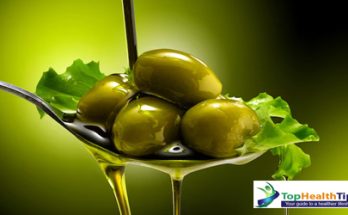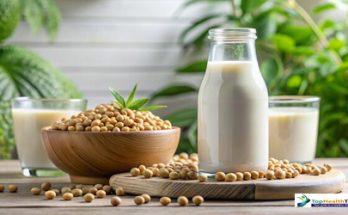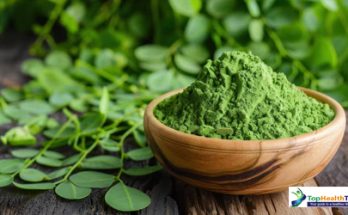Bananas are often overlooked, yet they offer numerous health benefits that make them a nutritional powerhouse. This simple, portable fruit is packed with vitamins, minerals, and other nutrients that can significantly improve your health. Bananas are not just tasty and convenient but also scientifically proven to enhance well-being. In this article, we will explore the reasons why you should consider adding a banana to your daily diet and how it can benefit your overall health.
The Nutritional Profile of Bananas
Bananas are rich in several essential nutrients that are crucial for maintaining good health. Understanding their nutritional composition provides insight into why bananas are such an effective health-boosting food.
- Calories: One medium-sized banana contains about 105 calories, making it a low-calorie snack option.
- Carbohydrates: Bananas are high in carbohydrates, providing about 27 grams per serving. These are mostly simple sugars like glucose, fructose, and sucrose, which offer quick energy.
- Fiber: Each banana contains about 3 grams of fiber, which helps with digestion and weight management.
- Potassium: A medium banana provides approximately 422 milligrams of potassium, essential for heart health and maintaining proper muscle function.
- Vitamin C: Bananas contain about 10% of your daily Vitamin C needs, aiding in immune function and skin health.
- Vitamin B6: A banana provides 20% of your daily Vitamin B6 needs, supporting brain health and energy production.
- Magnesium: This mineral, found in bananas, helps with muscle relaxation and bone health.
- Antioxidants: Bananas contain dopamine and catechins, powerful antioxidants that reduce inflammation and oxidative stress.
Chart displaying the percentage of Daily Values (DV) for various nutrients found in 100 grams of a banana

Given these nutrients, it’s easy to see why bananas are a great addition to a healthy diet. Now, let’s dive into the specific health benefits of consuming bananas regularly.
1. Boosts Heart Health
Bananas are widely known for their high potassium content, making them an excellent food for heart health. Potassium is a key electrolyte that helps regulate blood pressure by counteracting the effects of sodium in the body. When you consume foods rich in potassium, your body excretes excess sodium, which helps lower blood pressure and reduce the risk of stroke and heart disease.
A study published in the American Journal of Clinical Nutrition found that a diet rich in potassium can lower blood pressure and reduce the risk of cardiovascular events by as much as 24%. In addition to potassium, the fiber content in bananas helps lower bad cholesterol (LDL), further reducing the risk of heart disease.
Moreover, bananas are rich in Vitamin C and antioxidants, which protect the arteries from oxidative stress and inflammation, two major contributors to heart disease. Eating a banana daily may help maintain a healthy heart and protect against future cardiovascular problems.
2. Supports Digestive Health
Bananas are an excellent source of dietary fiber, particularly soluble fiber like pectin. This type of fiber dissolves in water to form a gel-like substance in the stomach, slowing down digestion and promoting feelings of fullness. This helps regulate bowel movements and prevents constipation.
Additionally, the fiber in bananas acts as a prebiotic, meaning it feeds the beneficial bacteria in your gut. A healthy gut microbiome is essential for good digestion, immune function, and overall health. A study published in the World Journal of Gastroenterology supports the role of fiber in improving gut health and preventing digestive disorders such as irritable bowel syndrome (IBS).
Bananas are also easy to digest, making them a great option for those recovering from digestive illnesses or dealing with upset stomachs. They are often recommended as part of the BRAT diet (bananas, rice, applesauce, toast) for treating diarrhea and other gastrointestinal issues.

3. Provides a Natural Energy Boost
Bananas are often referred to as nature’s energy bar, thanks to their balance of carbohydrates, sugars, and fiber. The natural sugars in bananas—glucose, fructose, and sucrose—provide an immediate energy boost, while the fiber ensures that this energy is released slowly, preventing blood sugar spikes.
This makes bananas an ideal snack for athletes or anyone looking for a quick energy boost before or after a workout. A study in the Journal of Nutritional Biochemistry revealed that bananas are as effective as sports drinks in providing energy and improving performance during endurance activities.
The vitamin B6 found in bananas also plays a key role in energy metabolism, helping the body convert food into usable energy. Whether you’re hitting the gym or just need an afternoon pick-me-up, bananas are a smart, healthy choice.
4. Enhances Mood and Reduces Stress
Feeling stressed or moody? Grab a banana. Bananas contain high levels of tryptophan, an amino acid that the body converts into serotonin—a neurotransmitter known as the “feel-good” hormone. Serotonin helps regulate mood, reduce feelings of anxiety, and improve sleep quality.
In addition to tryptophan, the Vitamin B6 in bananas helps produce neurotransmitters like dopamine and serotonin, which are essential for regulating mood and stress levels. Magnesium, another nutrient found in bananas, is known for its calming effects on the nervous system and its ability to reduce muscle tension and stress.
According to a study published in the Journal of Affective Disorders, magnesium deficiency is linked to an increased risk of anxiety and depression. Including bananas in your daily diet can help combat these issues and promote mental well-being.
5. Promotes Healthy Weight Management
Bananas are a great option for those looking to manage or lose weight. Despite being sweet, bananas are relatively low in calories and contain no fat. The fiber in bananas helps keep you full and satisfied, reducing the likelihood of overeating.
In fact, research published in Nutrition Reviews suggests that fiber-rich foods like bananas can aid in weight loss by increasing feelings of fullness and reducing overall calorie intake. Furthermore, the natural sugars in bananas provide a healthier alternative to processed sweets, helping to curb sugar cravings.
Bananas can be enjoyed as part of a balanced breakfast, a midday snack, or even a healthy dessert. Their versatility makes them an easy and delicious addition to any weight management plan.
6. Supports Bone Health
Although bananas are not high in calcium, they play a crucial role in bone health due to their high potassium and magnesium content. Potassium helps neutralize acids in the body that can leach calcium from the bones, while magnesium is essential for the proper absorption of calcium.
A study published in the American Journal of Clinical Nutrition found that individuals with higher potassium intakes had greater bone mineral density, which is important for maintaining strong, healthy bones as we age.
Bananas are also rich in Vitamin C, which helps in the production of collagen, a protein that provides structure to bones, skin, and connective tissues. By eating bananas daily, you can support bone health and reduce the risk of conditions like osteoporosis.
7. Strengthens the Immune System
Bananas contain a variety of nutrients that support the immune system, including Vitamin C, Vitamin B6, and antioxidants. Vitamin C is well-known for its ability to boost immunity by stimulating the production of white blood cells, which are essential for fighting infections.
Vitamin B6 plays a role in immune cell function and helps the body produce antibodies. Additionally, the antioxidants in bananas protect immune cells from oxidative damage, keeping the immune system strong and resilient.
Incorporating bananas into your daily diet can help protect against colds, flu, and other illnesses by keeping your immune system functioning at its best.

8. Improves Skin Health
Bananas are not only good for your internal health but also for your skin. The Vitamin C and antioxidants found in bananas help combat oxidative stress, which can cause premature aging of the skin. These nutrients also promote collagen production, keeping the skin firm and youthful.
Furthermore, bananas contain silica, a mineral that helps improve skin elasticity and texture. Some people even use banana peels as a natural remedy for acne and wrinkles by applying the inner part of the peel to their skin.
How to Incorporate Bananas into Your Diet
Adding bananas to your daily routine is easy and delicious. Here are some simple and creative ways to enjoy them:
- Smoothies: Blend a banana with spinach, almond milk, and chia seeds for a nutrient-packed breakfast.
- Banana Bread: Use ripe bananas to make a healthy, whole-grain banana bread.
- Banana Pancakes: Mash a banana and mix it with eggs for a simple, gluten-free pancake recipe.
- Frozen Banana Bites: Freeze banana slices and dip them in dark chocolate for a guilt-free dessert.
- Banana Oatmeal: Add sliced bananas to your oatmeal for natural sweetness and an extra boost of fiber.
Common Myths About Bananas
Despite their numerous benefits, there are some myths about bananas that persist. Let’s debunk a few:
- Myth: Bananas are fattening.
- Fact: Bananas are low in calories and contain no fat, making them an excellent snack for weight management.
- Myth: Bananas cause constipation.
- Fact: Bananas are rich in fiber, which helps promote regular bowel movements. However, unripe bananas, which contain more resistant starch, may have a constipating effect on some people.
- Myth: Bananas have too much sugar.
- Fact: While bananas contain natural sugars, they are balanced with fiber, which helps prevent blood sugar spikes.
Conclusion:
Bananas are a nutritional powerhouse, offering a wide range of health benefits that support heart health, digestion, weight management, and more. Their convenience, affordability, and delicious taste make them an easy addition to any diet. By eating one banana every
Related posts for nutrition & food>>>
References
- American Heart Association. (2017). Potassium and Cardiovascular Health. Circulation.
- World Journal of Gastroenterology. (2014). Fiber and Gut Health.
- Nutrition Reviews. (2015). The Role of Dietary Fiber in Weight Management.
- Journal of Nutritional Biochemistry. (2018). Carbohydrates and Energy in Athletes.
- American Journal of Clinical Nutrition. (2017). Potassium Intake and Cardiovascular Health.




